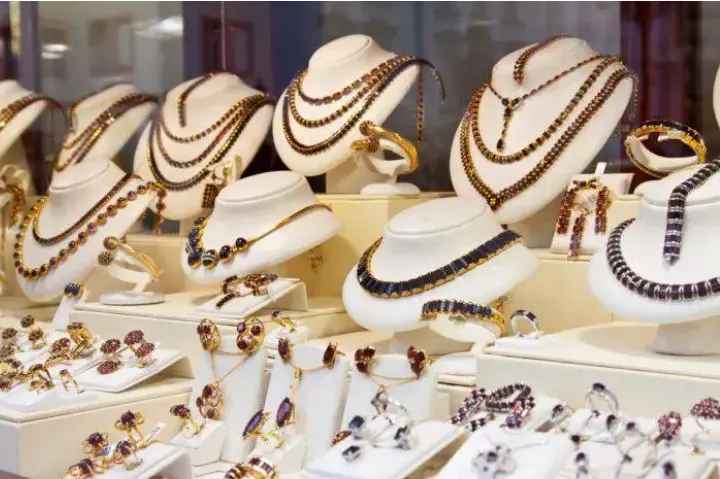
-
Posted By Editorial Staff
-
-
Comments 0
In the jewelry business, B2B relationships are fundamental to long-term success. Customization is one of the most compelling ways companies can gain a competitive edge in the market. The ability to offer uniquely crafted jewelry pieces opens new routes for pursuing unique client demands, reinforcing ties with important customers, and fostering strong brand loyalty.
In this article, we explore the significance of customization in the B2B jewelry market and ways of helping businesses flourish.
Table of Contents
ToggleThe Growing Demand for Custom Jewelry
Fashion jewelers are custom-ordering more because of the need for personalization, ethical sourcing, and technological advances. For B2B suppliers, it is crucial to adapt to this demand if they want to remain relevant and satisfy the changing trends of retailers, designers, and brands.
Understanding Consumer Preferences
Consumers today are seeking exclusivity and something unique when purchasing jewelry. A gemstone, many designs, or an engraving say much about the wearer’s personality. B2B companies that supply retailers, designers, and brands need to recognize this preference shift and offer personalization options.
The Impact of Customization on Market Trends
A number of factors that control the customization revolution include:
- Personalized jewelry gifts. It takes on emotional appeal through engravings, naming, or messages — or choosing distinct pieces like a Swarovski necklace that feels one-of-a-kind.
- Sustainable and ethical sourcing. Clients would want to customize pieces with ethically sourced materials.
- Technology integration. 3D printing and AI-driven design tools promote intricate and precise customization.
How Customization Enhances B2B Relationships
Strengthening Client Loyalty
Personalization creates closer contact between a wholesaler of jewelry and their clients. Companies with personalized solutions win trust and have long-term partnerships. When the retailer is aware that they can always ask for exclusive models that coincide with their brand identity, they are more likely to stay with their supplier.
Competitive Advantage in the Market
The game is all about differentiation in the jewelry market. Wholesalers can establish their uniqueness through the provision of customized designs as opposed to mass-produced ones. This competitive edge will help attract premium clients who pay more for exclusivity and personalized service.
The Role of Technology in Jewelry Customization
Digital Design and 3D Printing
Modern technologies have transformed the jewelry industry. With the help of CAD software, highly detailed digital models can be created that allow customers to preview their jewelry before it goes into production. In addition, 3D printing enhances the prototyping process, minimizing expenses and accelerating production timelines.
Virtual Consultations and AI Recommendations
The digital platform has made virtual consultations a reality for B2B jewelry wholesalers. With AI at the helm, recommendation tools study client preferences and suggest which designs best suit their style, making the process seamless and efficient.
Implementing Customization in Jewelry Wholesale
This consists of successful jewelry wholesale customization with a strategic direction: flexible manufacturing processes, strong collaboration between themselves and the retail and designer links, and crystal-clear price quotations. In summary, with their efficient supply chain, skilled artisans, and timely delivery, the businesses have been meeting increasing demand while achieving profitability and maintaining competitiveness in their respective markets.
Flexible Production Processes
For customization to be successful, wholesalers must have a flexible production system. This includes:
- Adaptable supply chains. Ensuring a steady flow of raw materials for unique designs.
- Skilled artisans. Employing experts who can craft intricate custom pieces.
- Efficient turnaround times. Balancing customization with timely delivery.
Partnering with Retailers and Designers
Jewelry wholesalers should work closely with retailers and designers to fully express customization. By understanding their unique demands, wholesalers can develop exclusive collections catering to specific markets.
Pricing Strategies for Custom Orders
Customization often comes with additional costs. Businesses must implement transparent pricing models that reflect the following:
- The complexity of the design.
- The quality and rarity of materials used.
- The production time required. Clear pricing, like that seen when shopping for Pandora jewelry online or in-store, builds trust and encourages customers to explore higher-value custom options.
The Future of Customization in Jewelry Wholesale
The future of wholesale jewelry will be in customization, driven by changing consumer expectations and ethical awareness. Innovations such as augmented reality (AR) try-ons and blockchain authentication will help make jewelry more personalized, while sustainable sourcing is the mantra. For wholesalers, expanding globally with culturally tailored designs offers new opportunities for growth and strengthening their presence in markets.
Evolving Consumer Expectations
The trend is likely to increase with the continuously changing preferences of consumers, which means that personalization will drive the future of the jewelry industry. The clients might desire more interactive experiences like trying with augmented reality or blockchain authentication for a bespoke piece.
Sustainability and Ethical Customization
With increased awareness of ethical sourcing, customization will extend beyond design to include:
- Fair-trade gemstones and recycled metals.
- Transparency in sourcing and production processes.
- Eco-friendly packaging and branding.
Global Expansion Opportunities
The demand for customized jewelry is not limited to a single region. Jewelry wholesalers can expand their business globally by offering personalized services tailored to different cultural preferences and traditions. This opens up new revenue streams and strengthens brand recognition.
Conclusion
Personalization is considered one of the strong weapons of the B2B jewelry marketplace. Differentiated value propositions help strengthen business growth and customer satisfaction. Personalization allows a wholesaler to emerge as an industry leader through technological integration, partnership building, and evolving consumer demand. Personalization in the wholesale jewelry industry is the future, and only those companies that adapt to this trend in competitive marketplaces will thrive.





